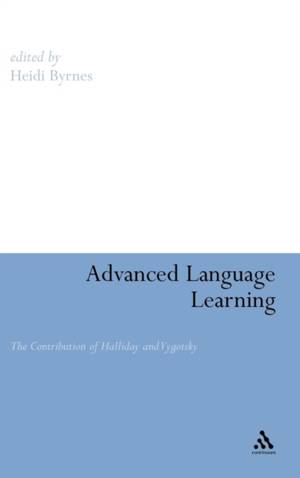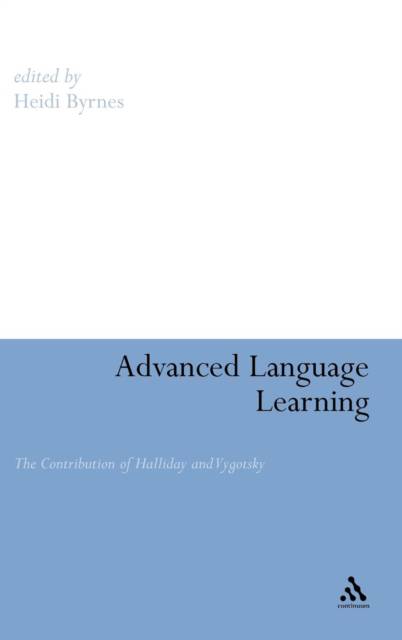
Bedankt voor het vertrouwen het afgelopen jaar! Om jou te bedanken bieden we GRATIS verzending (in België) aan op alles gedurende de hele maand januari.
- Afhalen na 1 uur in een winkel met voorraad
- In januari gratis thuislevering in België
- Ruim aanbod met 7 miljoen producten
Bedankt voor het vertrouwen het afgelopen jaar! Om jou te bedanken bieden we GRATIS verzending (in België) aan op alles gedurende de hele maand januari.
- Afhalen na 1 uur in een winkel met voorraad
- In januari gratis thuislevering in België
- Ruim aanbod met 7 miljoen producten
Zoeken
Advanced Language Learning
The Contribution of Halliday and Vygotsky
Heidi Byrnes
Hardcover | Engels
€ 275,95
+ 551 punten
Omschrijving
'The editor and authors in this volume make a convincing case for focusing on advanced foreign language instruction. Importantly, they invite consideration of this focus as an opportunity to re-examine conventional definitions of the target of instruction. In so doing, readers also learn more about the theories highlighted in this volume, and their capacity to enhance our understanding of advancedness and its development within an educational context. This book thus mediates between linguistic and language learning theories and educational practice, modelling the very best of what applied linguistics has to offer.' Diane Larsen-Freeman, Professor of Education, University of Michigan. The reality of multicultural societies and globalization has increased the demand for language abilities that far exceed those that have typically been associated with communicative competence in a second language. This book examines the acquisition of advanced levels of ability in three parts: theoretical; descriptive; and instructional. It moves beyond the traditional constraints of second language acquisition research by linking systemic functional linguistics and sociocultural theory. The contributors draw primarily on the work of Halliday, Vygotsky and Bakhtin, as well as empirical data from the language classroom, to suggest practical applications towards advanced literacy and linguistic competence. Advanced Language Learning will be of interest to academics researching systemic functional linguistics, second language acquisition and applied linguistics.
Specificaties
Betrokkenen
- Auteur(s):
- Uitgeverij:
Inhoud
- Aantal bladzijden:
- 288
- Taal:
- Engels
Eigenschappen
- Productcode (EAN):
- 9780826490711
- Verschijningsdatum:
- 24/01/2007
- Uitvoering:
- Hardcover
- Formaat:
- Genaaid
- Afmetingen:
- 156 mm x 234 mm
- Gewicht:
- 566 g

Alleen bij Standaard Boekhandel
+ 551 punten op je klantenkaart van Standaard Boekhandel
Beoordelingen
We publiceren alleen reviews die voldoen aan de voorwaarden voor reviews. Bekijk onze voorwaarden voor reviews.









